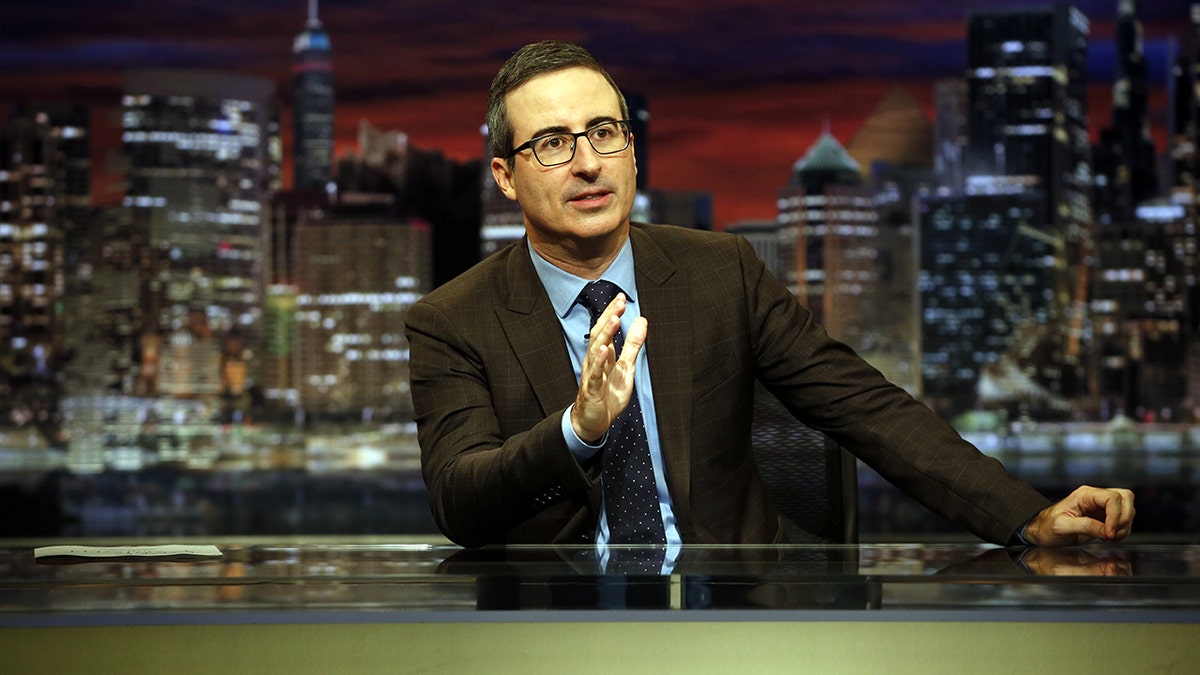
"Last Week Tonight With John Oliver" (HBO)
Do you hate picking up your phone and hearing an automated voice on the other end? John Oliver has your back.
The host of HBO's Last Week Tonight has come up with a new way to encourage FCC commissioners to take a harder stance on robocalls: by robocalling them. On his show Sunday evening, Oliver debuted a system (triggered by the big red button above) that robocalls FCC Chairman Ajit Pai and fellow commissioners every 90 minutes.
"It turns out, robocalling is so easy, it only took our tech guy literally 15 minutes to work out how to do it," he said.
Here's Oliver's robocall message to Pai and FCC Commissioners Michael O'Rielly, Brendan Carr, Jessica Rosenworcel, and Geoffrey Starks:
More From PCmag
"Hi, FCC. This is John from customer service. Congratulations! You've just won a chance to lower robocalls in America today. Sorry, but I am a live person. Robocalls are incredibly annoying, and the person who can stop them is you. Talk again in ninety minutes. Here's some bagpipe music."
Check out the segment below.
The FCC did not immediately respond to PCMag's request for comment about the prank.
During the segment, Oliver noted that robocalls shot up 57 percent in 2018 to 47.8 billion calls. Sixty percent of all complaints to the FCC are about robocalls, he added. While some robocalls are actually helpful—calls about school closings or prescription refills, for example—most are either annoying or illegal.
"Everybody is annoyed by robocalls," Oliver said. "Hatred of them might be the only thing that everyone in America agrees on now."
Oliver criticized the Pai for failing to force telecom companies to act on robocalls.
"He could require them to offer free call-blocking services or implement something called call authentication, which could significantly curtail spoofing, but he hasn't done that" Oliver said. "Instead, what he's done is 'urge' them to do that… If he had 'required' them to it that from the get-go, we might actually have those fixes by now."
In November, Pai sent letters to 14 companies—including AT&T, Sprint, and Verizon—that pushed the carriers to quickly adopt an authentication system that can differentiate between legit phone calls and spoofed ones.
"I am calling on those falling behind to catch up," he said in a statement. "If it does not appear that this system is on track to get up and running next year, then we will take action to make sure that it does."
The authentication system Pai wants is called the "SHAKEN/STIR framework," an industry-developed standard. In January, T-Mobile became the first in the industry to launch a caller-verification feature based on that standard. Last month, Pai praised that move, and reiterated his call for everyone to do so by year's end. He threatened to "consider regulatory intervention," but did not elaborate.
At CES, Verizon announced it would offers its spam and robocalling protection features to all customers for free, starting in March. Previously $3 per line per month, Verizon's Call Filter service displays an alert if an incoming call is likely a robocall, spam, or fraudulent. You can also set up a filter to automatically send these calls to voicemail.
AT&T has offered a similar service called Call Protect to customers for free since the end of 2016, as has Sprint. These solutions are clearly not doing the trick.
This article originally appeared on PCMag.com.
